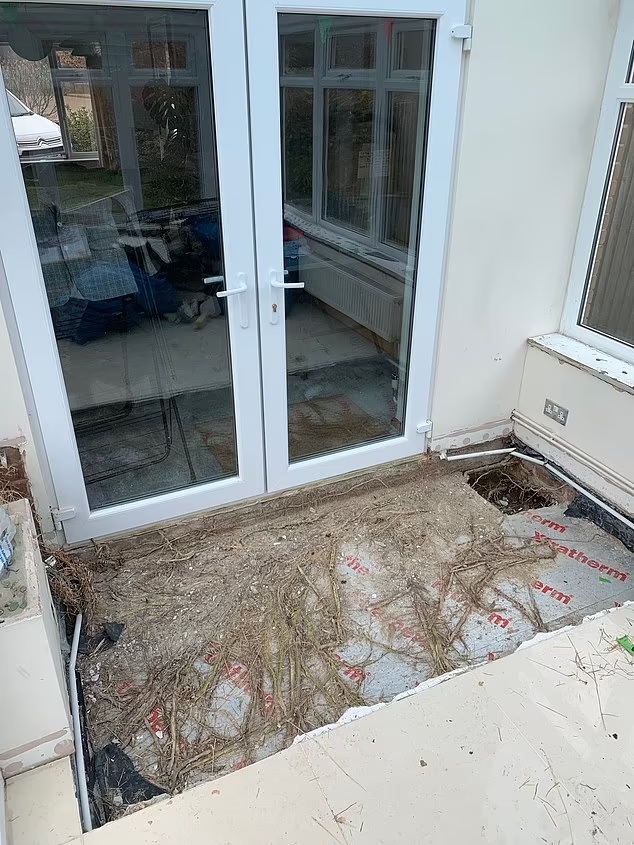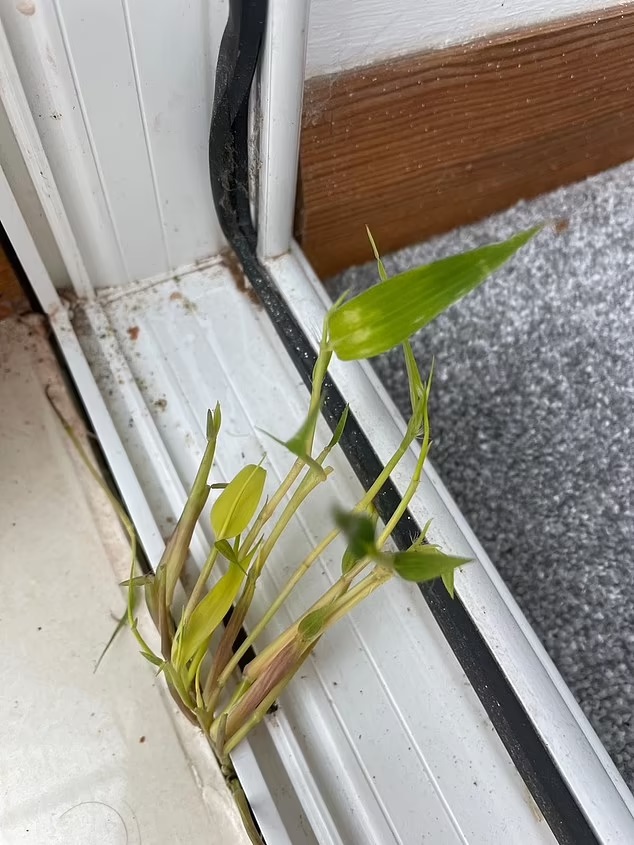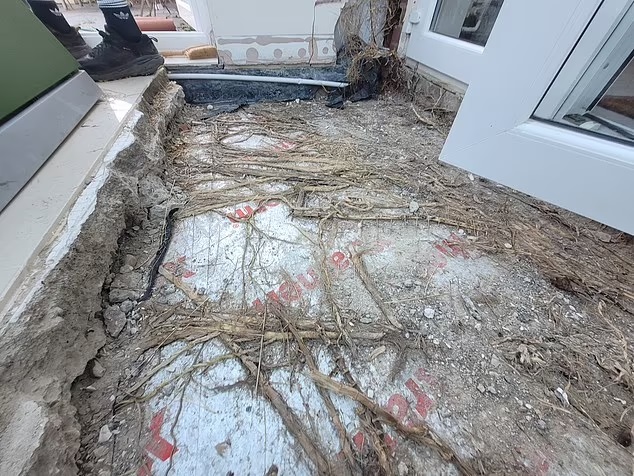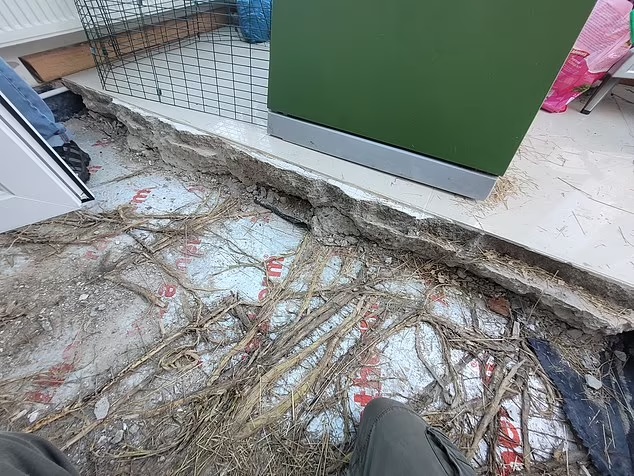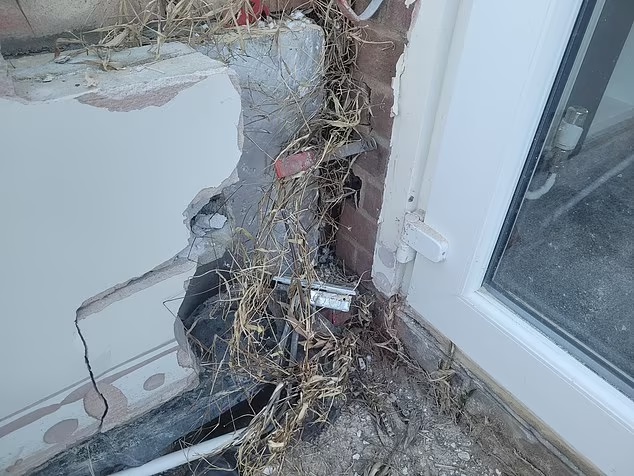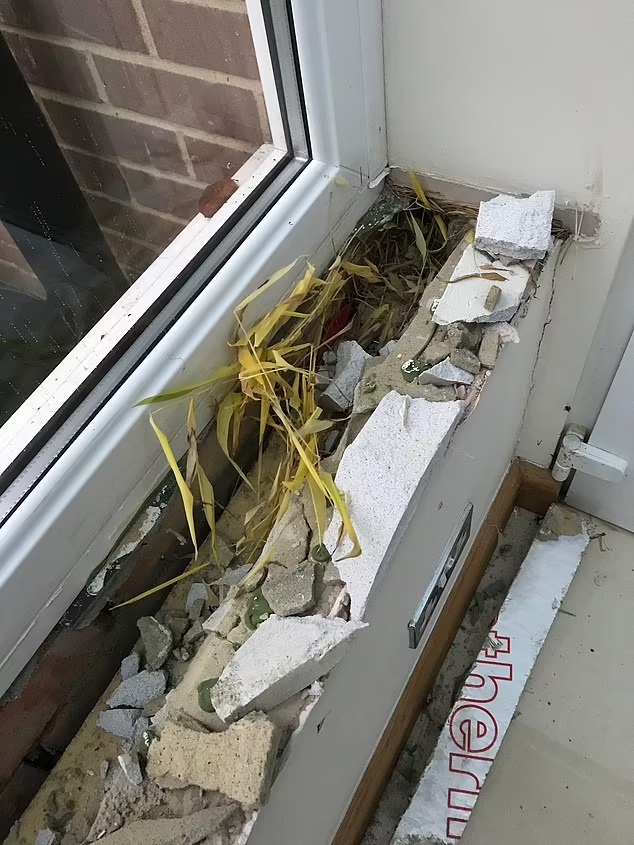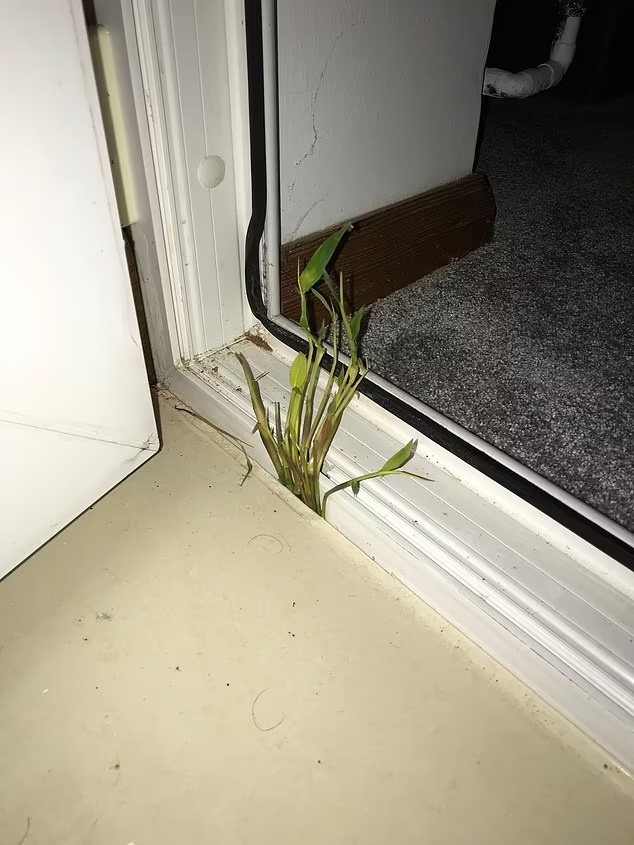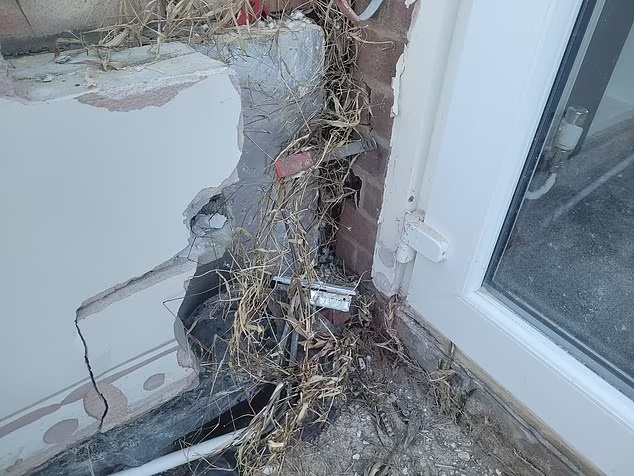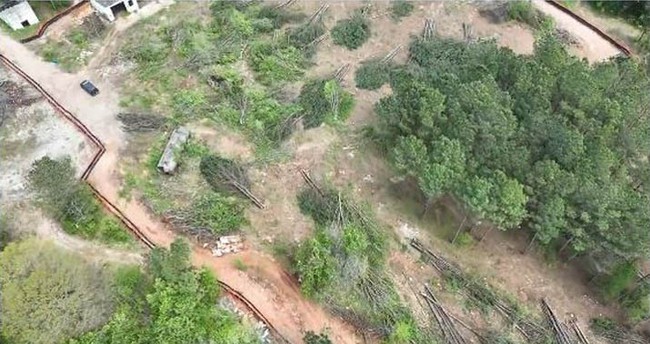A COUPLE were hit with a £60,000 repair bill after their neighbours’ weeds spread into their home – here are the warning signs to watch out for.
A husband and wife, who asked to remain anonymous, were shocked to find leaves sprouting through the floor of their conservatory in their Brighton home.
After digging up the path between the houses, the couple discovered the bamboo belonged to their neighbour.
Despite not being classed as an invasive species in the UK, the plant is renowned for spreading fast.
Bamboo is remarkably strong — its tensile strength can reach up to an astonishing 28,000 pounds per square inch, making it stronger than steel in some cases.
The couple now face demolishing their conservatory, with the cost set to be covered by their neighbour’s building insurer under a liability damage claim.
The husband said: “We hoped that if we dug up the rhizome underneath the path between our properties, that would solve the problem, but it quickly became apparent that it was much more serious.
“We’ve had to have the conservatory demolished, it will cost us around £60k to replace it.”
A survey of more than 2,000 people revealed that around 54 per cent of homeowners are unaware of the risks bamboo poses to properties.
Emily Grant, director of Environet, an invasive plant removal firm, stated that it is the responsibility of the plant owner to prevent it from spreading into neighbouring homes.
She also added that anyone considering buying a property with bamboo present should commission a bamboo survey to assess the potential risks and ensure they don’t face legal claims “as soon as you move in”.
As the sunny weather encouraged us to be outside, many homeowners have turned their attention to their gardens.
But while a vibrant outdoor space can be a source of pride, some of the most common garden plants could be quietly putting your home at risk from damage.
Left unchecked, these popular plants could lead to costly repairs, rising premiums, and even civil action.
Here, home insurance experts at Norton Insurance Brokers have identified the top five plants which could be putting you at risk…
1. Wisteria
Known for its elegant, cascading blooms, wisteria can be surprisingly aggressive behind the scenes.
It grows quickly and develops thick, woody stems that twist around anything in their path.
2. Bamboo
There was a bamboo crisis invading people’s homes last year, with numerous reports of the plant overtaking gardens, and in some cases, breaking into properties.
The problem appears to be getting worse, with a 69 per cent increase in UK searches for ‘how to get rid of bamboo’ suggesting that more homeowners are now struggling to contain it.
3. English Ivy
English ivy is a classic sight on British homes and garden walls, loved for its evergreen charm and cottage core appeal.
But don’t let appearances fool you, ivy is notorious for causing damage to the very structures it clings to.
4. Tall trees
Trees can add beauty, shade, and value to a property, but if they’re too close to your home, they could be doing more harm than good.
Many insurers are wary of trees over five metres tall growing within seven metres of a property, and with good reason.
5. Jasmine
Another garden favourite, jasmine, is loved for its delicate white flowers and unmistakable fragrance.
However, while its scent may be unbeatable, jasmine can quietly cause damage if left unchecked, particularly when grown close to the home.
In summer, jasmine can form a thick green mat that masks underlying vulnerabilities.
Gardening mistakes that could get you fined
Gardening experts over at Toolstation have revealed the garden laws you need to be aware of not breaking.
While some of these laws could land you with a fine of up to £20,000 in extreme cases, a friendly chat with your neighbours can usually resolve any issues.
Tree removal and pruning: If you have a tree in your garden you want to get rid of you better think twice and do your research.
The gardening experts reveal: “If one neighbour wishes to remove or heavily prune a tree that the other neighbour values, disputes can arise over the impact on the view, shade, or privacy. “
While it might cause a row, if it is in your property boundary it is ultimately your choice, unless it has a Tree Protection Order on it.
“But, some trees may be protected by a Tree Protection Order which makes it an offence to uproot, top or destroy them, the experts warn.
The maximum fine for breaking this law is £20,000, so make sure you double check if it does have a TPO.
You can find out by contacting your local council for a map that shows this information. Alternatively, you can ask to speak with your local tree officer.
Property boundaries and fences: One of the main causes of neighbours falling out is through arguing over property boundaries and fencing.
To avoid this situation, the gardening pros recommend checking the deeds of your property to determine the correct boundaries
“Most of the time, it’s easy to determine who owns the fence as the fence posts will usually be on the owners side,” they add.
“Additionally, the height of fences or hedges can cause disputes between neighbours if one party feels the height has exceeded the two metre guidance.
“Hedges and fences should be no more than two metres high, and you could be asked by the council to take them down if a neighbour complains about the height.
“Luckily, standard fence sizes are less than two metres tall so you shouldn’t have a problem.”
Garden structures and additions: A pergola is the perfect addition to a garden if you want somewhere to relax in the shade.
But if it obstructs your neighbour’s view or violates local building regulations it could cause a dispute, as can sheds and other garden structures.
“If you’re not sure, have a chat with your neighbours to let them know what you’re planning and, if there’s an issue, get in touch with your local council who can give you more guidance,” advise the gardening experts.
Overhanging branches and plants: “When branches, vines, or roots from one neighbour’s tree or plant extend into the neighbouring property, it can lead to disagreements over potential damage to structures, blocked views, or the burden of maintenance,” reveal the pros.
However, it’s important to note you can only trim overhanging branches up to the boundary of your property otherwise, it could be seen as trespassing.
You can climb into the tree to carry out the work if needed, but only on your property and make sure to stay on your side of the fence if you don’t have permission to enter


